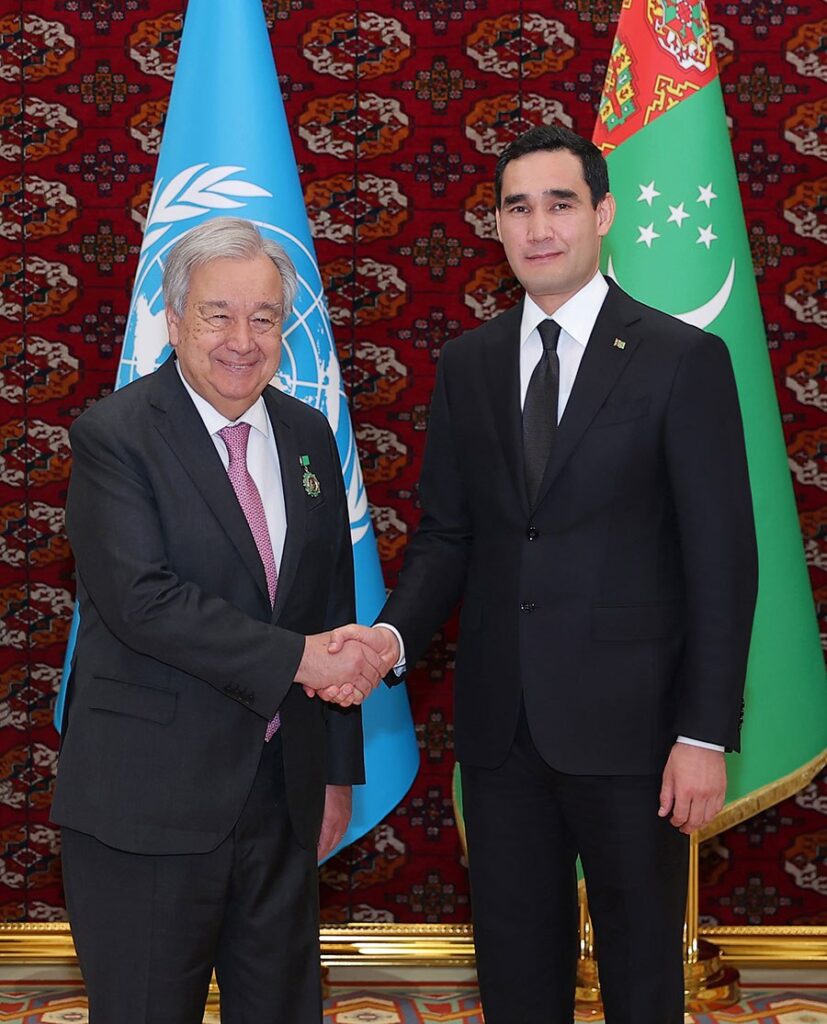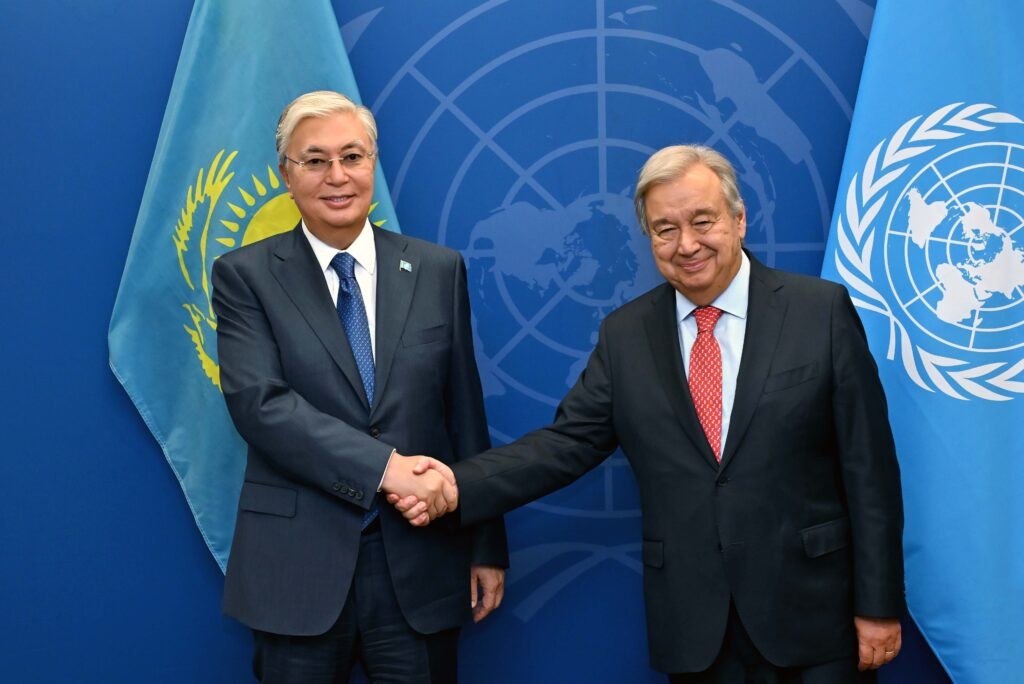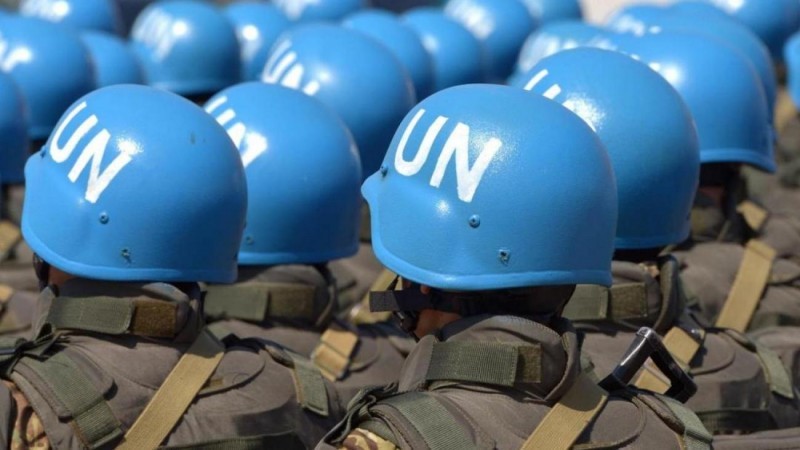UN’s Guterres and Turkmen President Berdimuhamedov Discuss Development, Security
During his visit to Turkmenistan, the UN Secretary General António Guterres met President Serdar Berdimuhamedov to discuss strengthening cooperation in political, economic, environmental, cultural, and humanitarian spheres. President Berdimuhamedov emphasized Turkmenistan's aspiration to further develop relations with the UN. Noting the importance of the country's permanent neutrality in strengthening peace and security in the region, he recalled that on Turkmenistan's initiative, the UN General Assembly proclaimed 2025 the International Year of Peace and Trust. Guterres praised Turkmenistan's proactive approach to solving urgent problematic issues and remarked on the country's important role in ensuring universal peace, security, and sustainable development. He also recognized Turkmenistan's efforts to address the problem of statelessness, especially in Central Asia. During the talks, both sides stressed the prolonged nature of the strategic dialogue between Turkmenistan and the UN, based on common ground regarding the organization's goals and the country's national interests. Outlining the priorities of the Turkmenistan-UN strategic dialogue, the president highlighted ensuring global security, resolving regional situations, sustainable development, and other humanitarian issues. He also proposed to develop a Global Security Strategy based on preventive diplomacy for conflict prevention, expressing a readiness for close cooperation with all interested states and UN institutions. In the context of regional cooperation, the parties noted the growing importance of Central Asia as a critical center of global energy, geopolitics, and transportation.






